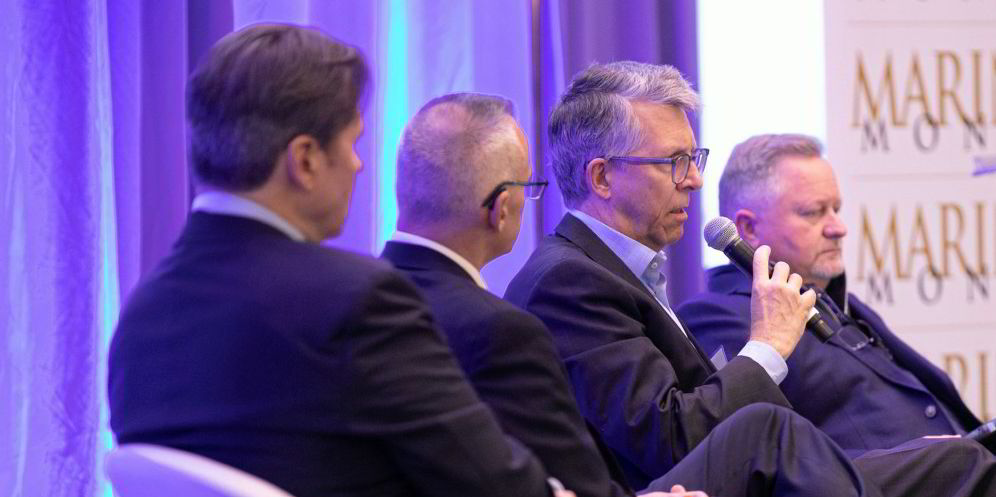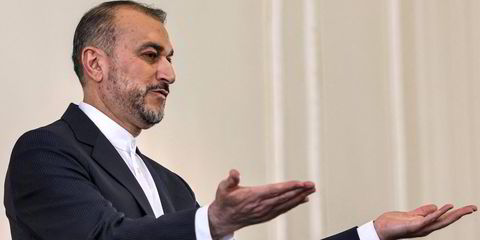Overseas Shipholding Group chief executive Sam Norton says he could “talk for an hour” about his pet subject of crew shortages in the US flag.
“The toughest challenge for all of us is the US labour challenge,” Norton said, referring to OSG and its fellow owners in the US flag and Jones Act cabotage trades.
Norton spent a portion of that hour speaking with TradeWinds on the sidelines of the recent Marine Money marine finance forum in New Orleans and he came armed with a plan.
The OSG boss wants to look abroad in a quest for help, bringing in foreign nationals to fill the jobs under a programme in which they would ultimately become US citizens.
The shortages are becoming even more pressing as the US contemplates expansion of a fledgling US-flag Tanker Security Program fleet from an existing stable of 10 tankers to more than 90, plus grapples with increased demands in the offshore wind sector and the transportation of alternative bunker fuels.
“They all require specialised skills, and we’re already short labour,” Norton said. “For the last couple of years, 40% of our ships have been sailing one or two people short every day. And this is before we add any new capacity.
I’ve spent time in Washington talking about this — there needs to be a national maritime strategy. And the problem is not going to be solved without immigration. Throughout history, labour shortages have been solved through immigration, through sponsoring people to come to the US on visas with a pathway to citizenship.”
Norton said his lobbying efforts to date have largely been private meetings with members of the US Congress, maritime unions and government oversight agencies.
“I want to be very clear that I’m not talking about just replacing US seafarers with foreign seafarers,” Norton said. “There would be visas that provide a green card from the day you land, with a process to earn US citizenship.”
New York-listed OSG — based in Tampa, Florida — is one of the leading tanker players in the US-flag trades. Its operating fleet includes suezmaxes in the Alaska market, conventional and lightering articulated tug barges, shuttle and conventional MR tankers, and non-Jones Act MR tankers that trade in the Tanker Security Program.
The Tanker Security Program subsidises US-flag tankers to work in international trade with an understanding that the vessels are available to the US government in times of war or national emergency.
“Everybody understands that there’s a labour shortage, but nobody’s really talking about a solution — well, they are, but young people don’t want to work in the American business,” Norton said.
‘Path to citizenship’
“Most of our employees are 50, 60, 70 years old. There’s a wave of retirements coming, and there’s not a lot of new talent coming in. This is a common theme in the industry. New ideas need to be considered.”

A further frustration is that the US Coast Guard is one of the few marine safety agencies that does not recognise reciprocity in seafaring experience with other nations.
“You start from day one — you need sea time to gain qualification,” Norton said.
“This is an effort that needs work. I think the State Department is listening. I think the Department of Defense understands there is a problem. And I think a strategy can be developed in conjunction with the unions that would sponsor qualified mariners on a path to citizenship.”





